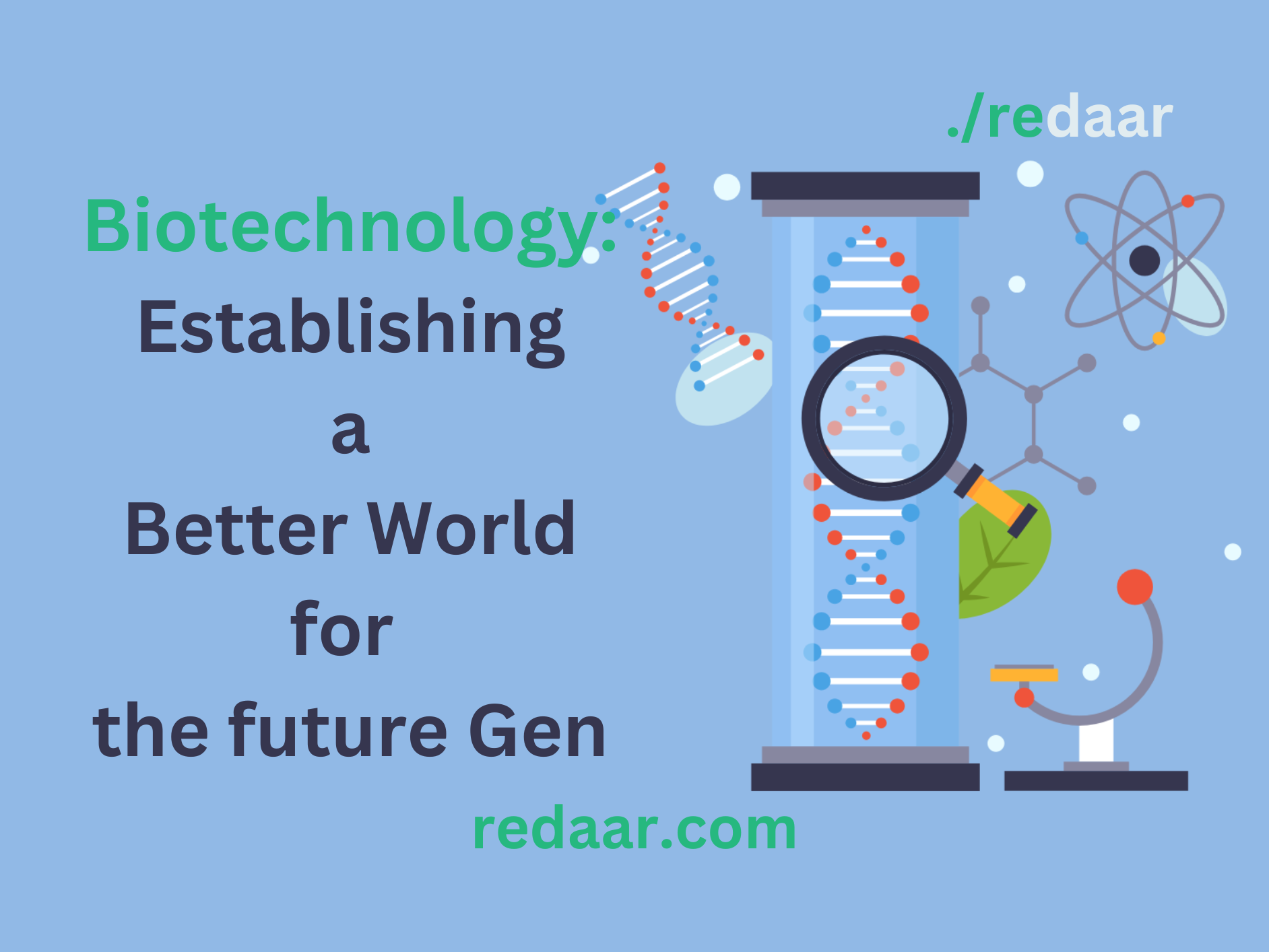The potential of living things can be unlocked through biotechnology, an innovative and interdisciplinary field, for the benefit of both people and the environment. Biotechnology has completely changed a variety of industries, from medicine and agriculture to energy and environmental preservation, by utilizing the power of biology, genetics, and molecular sciences.
In this essay, we explore the intriguing field of biotechnology, looking at its history, uses, ethical issues, and significant influence on the future.
Origins and Milestones of Biotechnology
The history of biotechnology may be traced back to when people first learned how to make food and drink through fermentation in prehistoric times. However, important developments that laid the groundwork for contemporary biotechnology didn’t occur until the 20th century.
James Watson and Francis Crick’s discovery of DNA’s structure in 1953 was a game-changing innovation that gave researchers new understanding of the genetic code that controls all living things. This finding opened the door for the manipulation of genes and genetic engineering for a variety of purposes.
A turning point in the history of biotechnology occurred in 1973 with the invention of recombinant DNA technology, which allowed researchers to combine DNA from various sources. This discovery made it easier to create genetically modified organisms (GMOs) and unlocked a world of opportunities.
Applications of Biotechnology
Numerous industries have been altered by biotechnology’s numerous uses, which provide creative answers to difficult problems:
Medicine and Healthcare: Gene therapy, the development of customized medicine, the creation of vaccinations, and the synthesis of therapeutic proteins all depend heavily on biotechnology. It has transformed how diseases are identified and treated, improving patient outcomes.
Agriculture and Food: Crop yields, pest resistance, and nutritional value have all improved with genetically engineered crops. Agricultural techniques that are beneficial to the environment can be developed thanks to biotechnology.
Environmental Conservation: Environmental preservation is aided by biomimicry, the practice of emulating nature’s designs for sustainable solutions, and bioremediation, the employment of microorganisms to purify contaminated surroundings.
Energy Production: By producing biofuels like ethanol and biodiesel from renewable resources like algae and agricultural waste, biotechnology offers the potential to lessen reliance on fossil fuels.
Industrial Processes: Enzymes created by biotechnology are employed in numerous industrial processes, from waste treatment to the creation of textiles, improving manufacturing efficiency and environmental sustainability.
Ethical Considerations and Challenges
While biotechnology holds immense promise, it also raises ethical and societal concerns:
Genetic Engineering and GMOs: The development of genetically modified organisms sparks discussions about possible environmental and health implications, as well as concerns regarding labeling and consumer knowledge.
Gene Editing and CRISPR-Cas9: The cutting-edge gene-editing technique CRISPR-Cas9 allows for the precise modification of genes. However, moral conundrums surround its application to humans, posing concerns about designer offspring and unexpected effects.
Patent Issues: Debates about ownership, access, and the fair distribution of benefits have been spurred by the patenting of genetic information and living things.
Privacy and Data Security: Biotechnology advancements have resulted in the collecting and storage of enormous volumes of genetic and medical data, creating questions about data security and privacy.
Future Trends in Biotechnology
The future of biotechnology is filled with exciting possibilities:
Precision Medicine: Individualized treatments based on a patient’s genetic profile will be made possible by advances in genomics and personalized medicine, enhancing treatment success and lowering side effects.
Synthetic Biology: In synthetic biology, new biological components and systems are designed and engineered. It has the potential to produce new materials, biofuels, and therapeutic treatments.
Regenerative Medicine: Regenerative therapies that use the body’s natural processes to repair and replace damaged tissues and organs may be developed as a result of biotechnology.
Biopharmaceuticals: The production of biologically derived drugs, such as monoclonal antibodies and gene therapies, will revolutionize disease treatment and prevention.
Bioinformatics and AI: Our understanding of intricate biological systems will improve with the integration of bioinformatics and artificial intelligence, which will also speed up drug discovery.
Biotechnology is at the forefront of scientific and technological advancement, providing answers to some of the most important problems facing humanity. Its uses are widespread and include everything from agriculture to medicine, energy to the environment. As biotechnology develops, it offers potential as well as ethical issues that need to be carefully considered.
It is crucial to approach biotechnology’s developments with a sense of responsibility, collaboration, and mindfulness as we embark on a journey toward a future where biotechnology changes how we live, heal, and interact with the world. Biotechnology has the ability to unveil nature’s secrets, enhance human knowledge, and pave the path for a healthier, more sustainable future with careful management and a commitment to ethical principles.
Keep following us and we shall provide you with a plethora of knowledge on different topics of finance, technology, and health.

